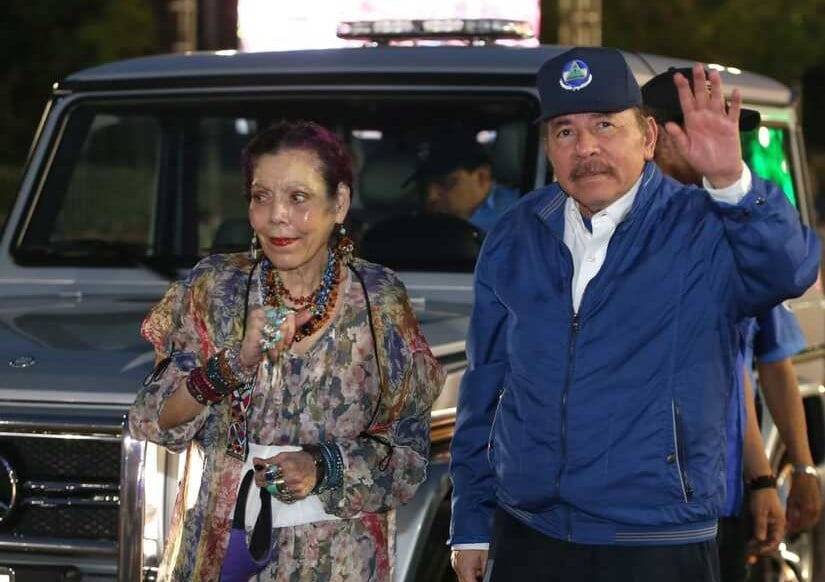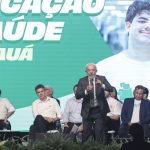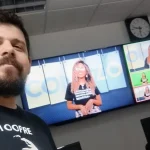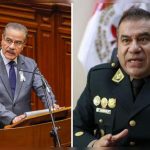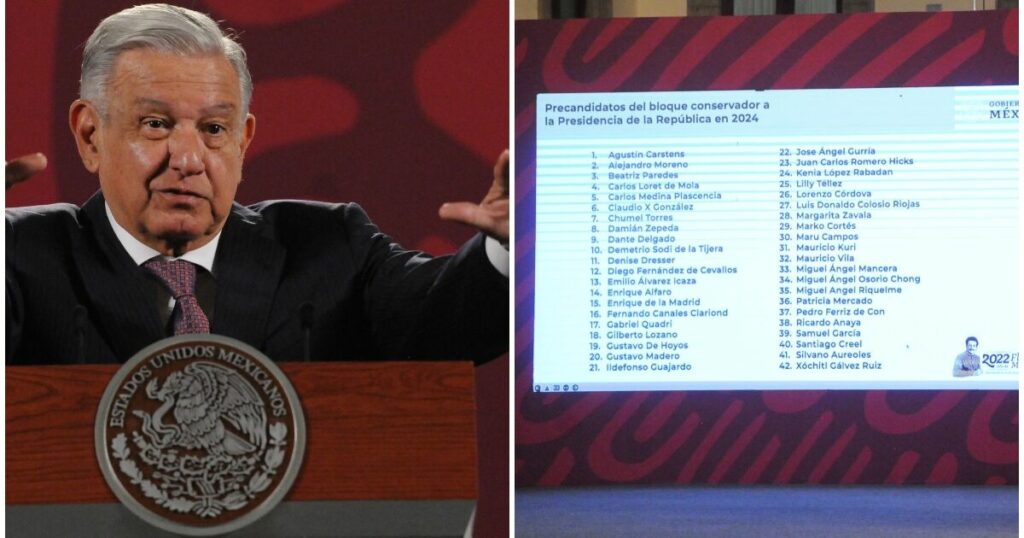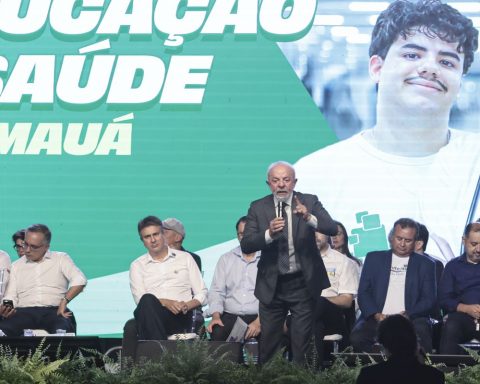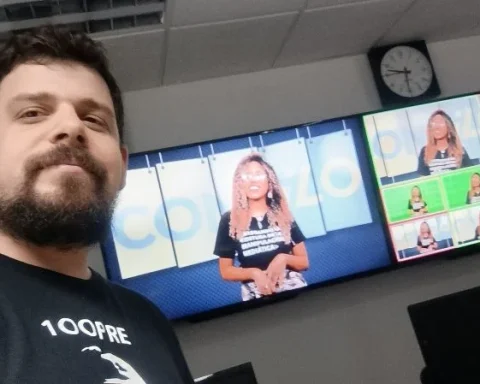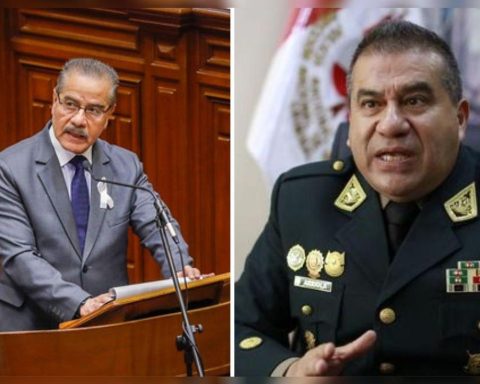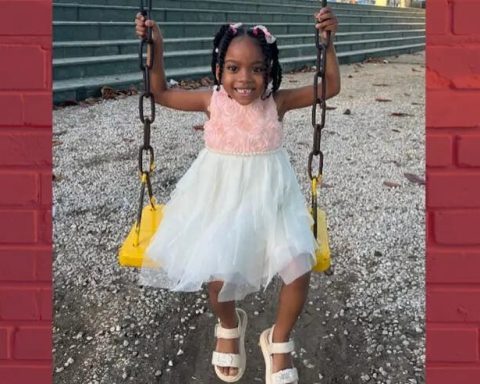The open investigation in Argentina against the dictators Daniel Ortega and Rosario Murillofor crimes against humanity in Nicaragua will increase “international pressure” against the dictatorship and would include an “international arrest warrant”, which would limit the countries to which Ortega, Murillo and their accomplices could travel, although it would not end in jail, says the Argentine lawyer Darío Richarte, one of the two jurists who is promoting the accusation.
The also former vice-rector of the University of Buenos Aires (UBA), in an interview with the program Tonightexplained that The investigation against the Ortega dictatorship will be an “extensive process” and it would take a long time. However, he stressed that these types of actions are important because they help make visible the serious crimes committed by dictatorships like the one in Nicaragua and incidentally “make life a little more difficult” for their operators, “isolating them more and more at the international level.” .
The criminal investigation against Ortega, Murillo and their repressive officials was opened on October 5 in the courts of Comodoro Py, Buenos Aires, Argentina, based on the principle of universal jurisdiction, to determine if they committed crimes against humanity in Nicaragua. Lawyer Diego Pirota promoted the accusation together with Richarte.
In addition to Ortega and Murillo, the director of the National Police, the first commissioner Francisco Díaz; the presidential adviser, Néstor Moncada Lau; the head of the Nicaraguan Army, General Julio César Avilés Castillo; the transport minister, retired general Óscar Mojica; the president of the National Assembly, Gustavo Porras Cortés.
Also the director of the Nicaraguan Social Security Institute, Roberto López; the presidential adviser on defense and security issues, Óscar Valladares; the former health minister, Sonia Castro; and the president of the Central Bank of Nicaragua, Ovidio Reyes Ramírez.
Richarte’s career does not come from the defense of human rights. However, he maintains that he has been linked to academic life for more than 20 years. “We have been following the situation in Nicaragua since April 2018,” he adds, justifying that the Argentine justice system has “a track record in accepting universal jurisdiction for cases where acts that were not committed in Argentine territory are judged.”
“Here it is not that Argentine justice is focused on one side, here what we want is that Argentine justice, we would also like our Government, condemn the human rights violations that occurnot because they are from one or another sector that cause it, ”he adds.
According to Richarte, another motivation to promote the cause was concern about the weakening of democratic systems in Latin America and the alert generated by the reestablishment of a dictatorship in the region.
“It is a prevention, it is of course in solidarity with Nicaragua, with the victims, to make the problem visible, but it is also in self-defense of democracy, because if we do not make it visible, if we do not make life a little more difficult for the dictators If we do not isolate them internationally, this disease, which unfortunately is spreading more and more, is affecting us even as Argentines. We are all very connected in Latin America and we Argentines are not an exception”, he affirms.
What happens if Ortega and the Nicaraguan State refuse to respond to the request of the Argentine justice, as they have already done with warrants from the IACHR or the sentences of the Inter-American Court?
(…) It is logical that dictatorships, whatever they may be, are opposed to being investigated. The dictators believe that they will be eternal, that they will always achieve impunity, that they will always be in their palaces, calm, but the reality is that this does not end. When we make this complaint here in Argentina, we do it precisely because we expect that the Nicaraguan dictatorship is very likely not going to collaborate, because if there were an independent judiciary in Nicaragua we would not be able to file this complaint against Nicaragua, but I have bad news for them: all these human rights organizations, the Inter-American System, the Universal System, all these people who have been able to go and take testimony of what is happening, the press, the citizens themselves through social networks, the children and girls who with great courage tell what is happening, the victims who are in exile. We have had meetings with some, in different cities, and we have had the opportunity to speak with them, to see so much suffering, so much indifference, because the reality is that this is becoming visible in the world, but it seems to me that it is something that one it cannot rest for a minute, so the more voices join in, the more instances are opened, the more things happen to show what is happening, this situation is going to generate the necessary pressure. I don’t know if it will serve to end this tomorrow, but I’m sure it will serve to isolate the dictatorship more and more and to illuminate the people who are being increasingly affected, who are the victims.
In these cases, then, the investigations into human rights violations carried out by organizations such as the Inter-American Commission on Human Rights, the GIEI, of the Office of the UN High Commissioner have also been taken.
Right, all of that. The judge begins with the investigation and the first thing he did, which we have already contributed (…) is to officially request that this documentation be forwarded. That part does not always understand it, that is, one can provide it, but the judge needs to validate it, he needs the OAS, the Inter-American Commission to officially send those documents. The other thing that the judge did – that he did it on his behalf and that is fine from the legal point of view – is to send a warrant to Nicaragua. This must be understood as a necessary verification that the State of Nicaragua does not have a case in which crimes against humanity are being investigated and has charged all those who make up that machinery. That for the Argentine justice is important that it not be like that, because otherwise they will not enable the jurisdiction.
What comes after the judge’s warrant?
The first clarification I make is that it is an investigation with many obstacles, that is, it is not easy for the justice of a country, even though it has experience in doing it, to be investigating events that occurred in another country, but here the good news is all this information revealed by all these organizations, until two years ago, when collaboration began to be withdrawn so that these organizations could move forward.
However, the Nicaraguans in exile continued to collect important information that is being added to the cause. The reality is that after this, what would follow is to wait for the response of the Nicaraguan State within a reasonable period of time and then go out and validate the evidence. Many of the victims are abroad, in countries that are going to collaborate with justice in Argentina and I am not just referring to the United States. Costa Rica has a very important tradition of collaboration in human rights and Spain, which has a socialist government, also has a policy of collaboration. In fact, they were almost the first to apply and what is the collaboration of these States going for? To be able to take or validate statements from victims, testimonies, and here, I place a very important emphasis, always important to avoid re-victimization, perhaps with five or six that can reflect, testify to certain types of crimes, carefully and the distance, that is also accepted in Argentine justice, can be reconstructed. So, after this, which I don’t know how long it will take, he is going to start looking for the statements of victims and witnesses, and after that the judge will have enough information to determine whether to summon not only Ortega and Murillo, but all the charged. Rather, they will be summoned to exercise their right to defense, as happens in democracies, and there they will have to give an investigative statement, in that supposed case that the judge understands that there is evidence to call them to defend, make a statement of inquiry.
If that happens and they don’t attend, the next step is the international arrest warrant for them, it’s not just the two of them, because a repression of these characteristics logically has those most responsible, as did the dictatorship in Argentina, but afterwards it has a whole apparatus that is at the service of repression.
Establishing the levels of responsibility, we, only from the testimonies collected by human rights organizations and bodies for the protection and promotion of human rights, a lot of more names come up here, but the objective is that: to make visible, to help from our tradition of respect for human rights and one of the few things that we are left as strong in Argentina, let’s say, which is a committed Judiciary and help with that little light to isolate the regime more and more internationally.
Does the taking of the testimonies of the victims have to be face-to-face? Who is in charge of collecting them?
First, I rule you out, it does not have to be face-to-face in Argentina… they can be virtual media, and the most correct thing would be via exhortation, taking the statement in the countries where it is located.
Who determines which witnesses to subpoena? It is the judge or the prosecutor, we could propose, present briefs where we propose witnesses; the prosecutor could propose others, he could agree with us, he could say there are few or more are needed, and the judge may or may not agree with us.
The witnesses are the victims and they have recounted in different places the events they suffered, then, from a careful reading of the presentations, once they officially arrive, that the judge has made to the Organization of American States, to the United Nations, and some non-governmental organizations, gather all this information and understand the pattern of repression and understand that there is a systematic plan by the Nicaraguan government to disappear people, to kill them, to deprive them of their liberty, to force mass migrations of people abroad, surely, I don’t know what their evidence technique is, but what is usually done in any criminal case is to group victims who have to do with each of the issues and try to get them to testify in the best way.
What cannot happen is that the Argentine justice system does not feel pressured in terms of time either, because they are complex cases, they require time, they have to be assembled (…).
We know that it will not end with the imprisonment of Ortega, that is, Argentina will never be able to achieve that. No one is stupid to imagine that situation, no one wants that, I wish it would happen, that will surely happen the day that Nicaraguans recover democracy, if we want there to be a judicial investigation, that there are dictators and their court, that they can have consequences, that feel the pressure of the international community beyond the reports, which are extremely important because without them nothing could have been done, but many times we know what dictators think about that, so it would not be bad if one more element could be added visibility of the dictatorship and at least one place where these events can be judicially investigated and where there can be some kind of consequence.
